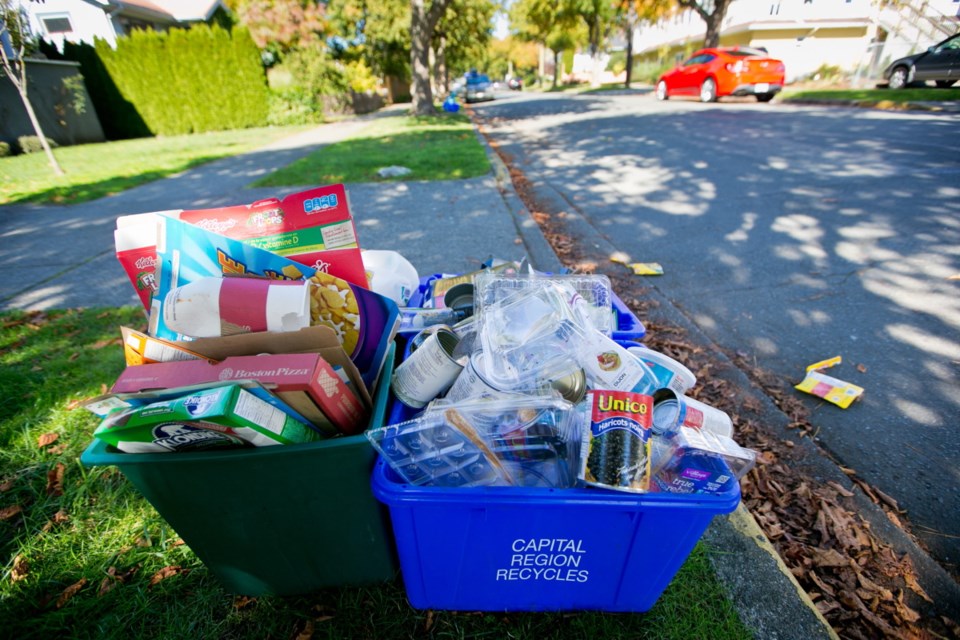Blue box pickup of glass containers will continue at capital region curbsides, but residents will be getting some reminders to make the program less wasteful, Capital Regional District directors decided Wednesday.
The board rejected a recommendation by its environmental services committee to phase out the collection of bottles and jars from about 120,000 single-family dwellings.
However, it also recognized that too many returnable bottles are destroyed through recycling and too much recycled material is contaminated by broken glass.
The need to put glass bottles and jars in separate containers will be underscored, along with emphasis on taking returnable bottles to bottle depots and liquor stores for refunds.
Victoria Mayor Lisa Helps said she voted to keep curbside collection and proposed an amendment to increase education.
“We need to do much better,” she said.
The current level of contamination of blue box contents by broken glass is estimated at eight to 10 per cent, when it should not exceed three per cent, said a CRD staff report.
Getting rid of curbside collection of glass would “privilege” car drivers with trunks for breakables while forcing others to lug bottles onto public transit or use bicycles to move them, Helps said.
She also feared that phasing out glass collection would lead some people to throw the containers into the trash.
District staff have been directed to come back with an educational plan, she said.
Metchosin Mayor John Ranns, a member of the CRD environmental services committee that recommended curbside pickup of glass be phased out, predicted such education will have “a small impact.”
An estimated 1,000 tonnes of returnable bottles went into blue boxes last year, indicating the issue is “a matter of convenience, it’s not a matter of education,” he said.
The committee viewed a temporary stop to glass collection as a way to jolt the region into problem-solving concerning the returnable bottles taken out of circulation by convenient blue boxes, Ranns said.
“We felt that this was the best procedure,” he said. “Solutions are always available, but you have to be prepared to work for them.”
Ensuring returnable bottles are returned rather than put in blue boxes would help local breweries who want their bottles back, support bottle depot businesses, and assist volunteer groups, sports teams, Boy Scouts and others who have relied on bottle drives to raise money.
“If there was that 1,000 tonnes available, you can bet they would be doing bottle drives,” Ranns said. “The whole idea of putting deposits on bottles is to encourage the reuse of them, and it’s just not working anymore.”
Barb Desjardins, CRD chairwoman and mayor of Esquimalt, voted along with Ranns in favour of the phase-out, as did Central Saanich Mayor Ryan Windsor and Sooke Coun. Rick Kasper.
The region pays Emterra Environmental about $5 million a year for collection services in a contract that extends until April 30, 2019, but Desjardins said she expects the region will revisit the issue before then to see how the education campaign has worked.



